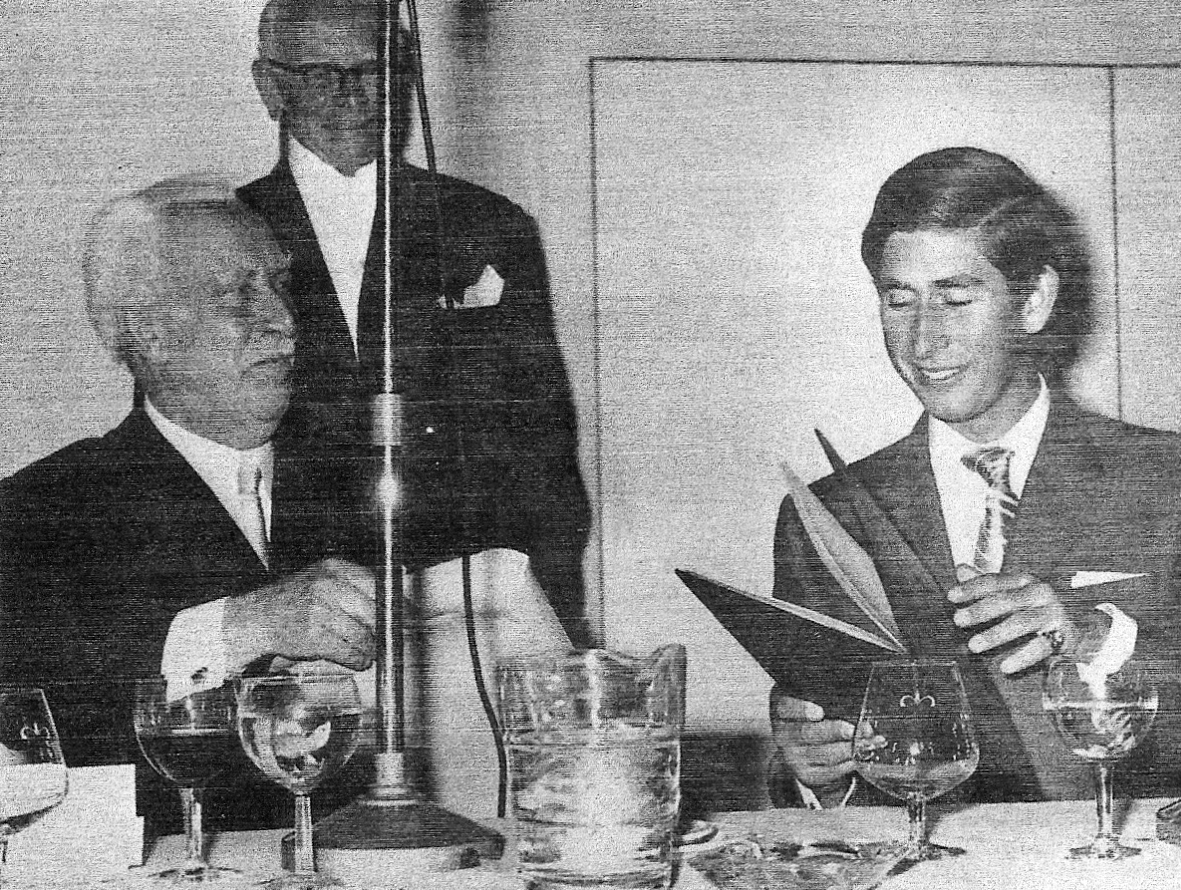Lennox Berkeley’s Music for a Prince
Tony Scotland on Lennox Berkeley’s ‘Andantino’ for Cello and Piano, written for King Charles III when he was Prince of Wales.
In 1969 the Performing Right Society commissioned fourteen of its composer members to write a piece in celebration of the investiture of Prince Charles as Prince of Wales. Lennox Berkeley, who was to become President of the PRS in 1974, contributed an Andantino for cello and piano.
Many of the other new works also involved cello and piano or trumpet, the instruments which Prince Charles had played at school and university. Sir Arthur Bliss, then Master of the Queen’s Music and President of the PRS, provided an arrangement for all three instruments of a theme from the Processional Interlude which he wrote for the Investiture Ceremony at Caernarvon Castle on 1 July 1969. Sir William Walton wrote a Theme (with variations) for cello solo, and Vivian Ellis, composer of the popular song, Spread a Little Happiness, wrote an Air on an A string for cello and piano. Ronald Binge, arranger of light music, wrote an ingenious Salutation for trumpet and piano with a permutation for cello and piano (by turning the page upside down), and Steve Race, pianist and television personality, wrote Windsor Blues for the Prince of Wales playing cello and his alter ego, the Earl of Chester, playing trumpet, with optional handclap percussion for his younger brothers, Princes Andrew and Edward.

The fourteen autographed works were bound into a red-leather, gold-tooled volume, entitled Music for a Prince, which Sir Arthur Bliss presented to the prince at the PRS Annual Luncheon in 1970. Among those present on that occasion was the new General Manager of the PRS, Michael Freegard, later its Chief Executive, and now a valued member of the Committee of the Lennox Berkeley Society.
The original album has been held in the archives of Buckingham Palace ever since its presentation, and it’s thought that none of the works has ever been played in public – not, anyway, by the Prince of Wales. But now the Welsh baritone Jeremy Huw Williams and the University of Arizona are collaborating on the première recording, with grants made by the Lennox Berkeley Society, the Bliss Trust and the William Walton Trust, amongst others. The CD will be released on the Toccata Next label later this year.

Berkeley’s contribution, the Andantino for cello and piano, is based on a beautiful melody which he remembered from his A Festival Anthem written for the Rev. Walter Hussey and the Choir of St Matthew’s Church, Northampton in 1945. It forms the fourth section of the Anthem, and sets a verse by the metaphysical poet George Herbert (left, in a line engraving from a posthumous portrait by Robert White, 1674).
The lines come from Herbert’s lyrical poem, The Flower, which uses the metaphor of spring to celebrate the spiritual renewal which can follow times of trial, the alternating short and long lines of the verses creating a music of loss and recovery. Berkeley chose to set the fourth of the seven verses in which the poet looks forward, with tears of joy, to a time of endless springs with God in Heaven, when nothing will change and flowers will bloom for ever.
O that I once past changing were, Fast in Thy Paradise, where no flower can wither; Many a Spring I shoot up fair, Offring at Heav’n, growing and groning thither, Nor doth my flower Want a Spring-showre, My sinnes and I joyning together.